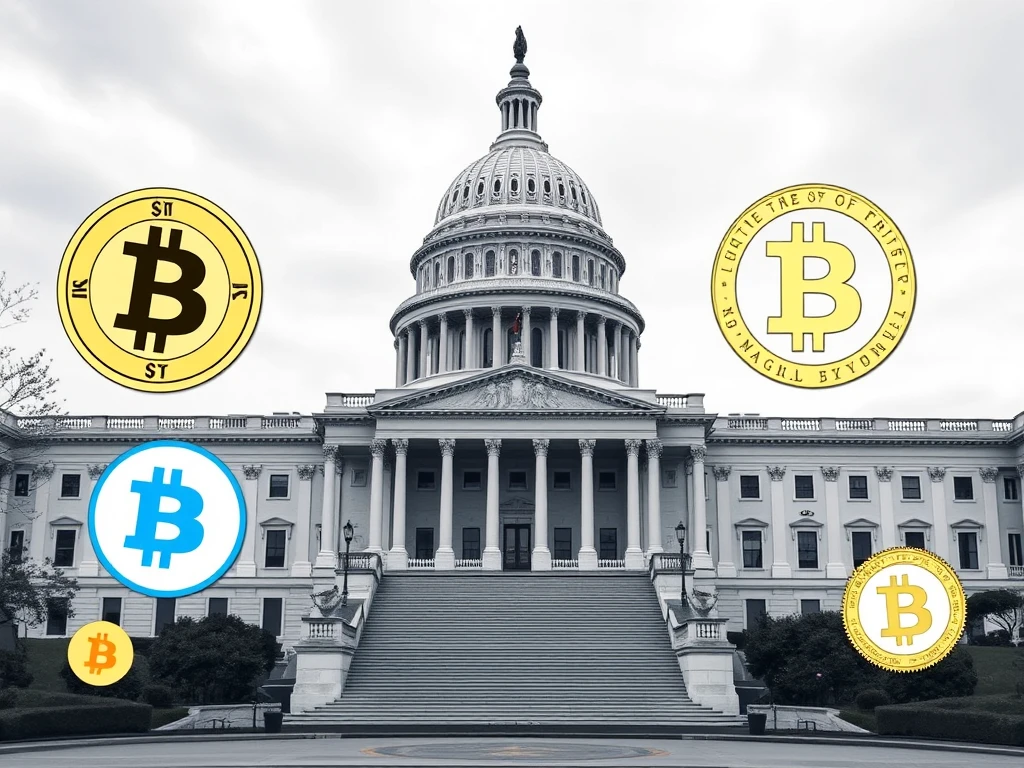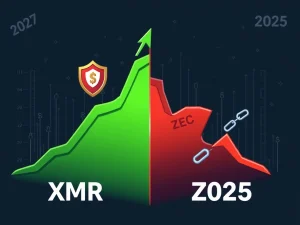Crucial US Stablecoin Regulation Bill Advances in Senate

Attention, crypto enthusiasts! The landscape of the digital asset world is constantly evolving, and one of the most significant developments involves how stablecoins, the bedrock of much of the crypto market, will be regulated. A crucial step towards establishing clear US stablecoin regulation was taken recently in the US Senate.
Senate Moves Forward on the GENIUS Act
In a key procedural vote on May 20, the US Senate voted 66-32 to advance the Guiding and Establishing National Innovation for US Stablecoins Act, commonly known as the GENIUS Act. This vote, known as cloture, successfully moved the bill forward, setting it up for debate on the Senate floor. This represents a significant step after a previous attempt to advance the bill was blocked earlier in May.
Understanding the Senate Stablecoin Bill‘s Journey
The journey of this Senate stablecoin bill hasn’t been without hurdles. Introduced by Senator Bill Hagerty on February 4, the bill initially faced resistance from some Democratic Senators. Concerns were raised regarding potential conflicts of interest related to President Donald Trump’s crypto ventures and certain anti-money laundering provisions within the bill. This led to a temporary halt in its progress on May 8.
However, following revisions aimed at addressing these concerns and building broader support, the bill gained enough bipartisan backing to pass the crucial procedural vote. Republican Senator Cynthia Lummis, a strong advocate for the bill, has expressed optimism about its potential passage, targeting a date around Memorial Day (May 26).
What Does the GENIUS Act Propose?
The GENIUS Act aims to bring regulatory clarity to the burgeoning stablecoin market, which currently holds a value of nearly $250 billion. The bill outlines several key requirements for stablecoin issuers:
- Stablecoins must be fully backed by reserves.
- Issuers must undergo regular security audits.
- Approval from federal or state regulators is required for issuance.
- Only licensed entities are permitted to issue stablecoins.
- Algorithmic stablecoins, which are not backed by traditional assets, are restricted under the proposed legislation.
This legislation builds upon previous efforts, including a discussion draft submitted by Senator Hagerty for former Representative Patrick McHenry’s Clarity for Payment Stablecoins Act.
Impact on the Stablecoin Market and Crypto Regulation
The passage of the GENIUS Act would have a profound impact on the stablecoin market, currently dominated by major players like Tether (USDT) and Circle’s USDC (USDC). By imposing clear rules and oversight, the bill seeks to enhance stability and consumer protection within this critical sector of the crypto economy. This move is part of a broader global trend towards establishing comprehensive crypto regulation to integrate digital assets more securely into the traditional financial system.
While the bill still needs to pass a final vote on the Senate floor and potentially navigate the House of Representatives, this procedural vote is a significant indicator of increasing momentum towards federal stablecoin legislation in the United States. The debate will now focus on the specifics of the bill’s provisions and their potential effects on innovation, market structure, and the competitive landscape.
Conclusion
The US Senate’s decision to advance the GENIUS Act marks a pivotal moment in the ongoing effort to establish clear US stablecoin regulation. As the bill moves to floor debate, the crypto industry and market participants will be watching closely to see how this legislation shapes the future of stablecoins and the broader landscape of crypto regulation in the United States. This development underscores the growing importance of stablecoins and the urgent need for a defined regulatory framework to ensure their safe and effective integration into the financial system.










